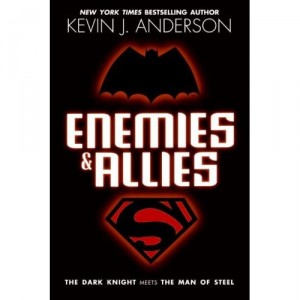Media Madness: Words & Pictures, Enemies & Allies
In Media Madness, Matt. Murray reviews, revisits and rambles about comics, cartoons and their interactions in and with related media.

In Media Madness (on Mondays and other days) I’ve focused much of my attention on adaptations of comics into movies, television shows and other temporally sequential art forms. Largely, that’s probably what one thinks of when one mentions the adaptation of the comic medium into another. However, there is a whole other strain of adaptation that has been around basically since the birth of the comic itself: the translation of comics and their characters into other print media that lack pictures… short stories and books.
Historically, Stan “The Man” Lee’s first job at Timely comics was writing “Captain America Foils the Traitor’s Revenge” a text-only filler story that ran in Captain America #3. Pieces like this were a necessity for comics in the Golden Age, so that a comic could be considered a proper “magazine” making it eligible for a mailing certificate with USPS. To this day, there still exists a school of thought that comics are in some way a lesser form than text-only fiction, simply because they have pictures.
I actually witnessed an institutionalized version of this “thought” first hand a couple of years back at a conference of Nassau County Public Librarians. I was invited to their annual breakfast to speak on a panel in favor of the comic book as a form of adult literature, and although I applaud the organizer for even trying to posit this thought into the head of her colleagues, the feeling of the room was essentially summed up in the closing comment of an attendee who stood up thanked the panel for coming and then shook her bee-hived head and said “…but these ‘books’ are still for children.”
